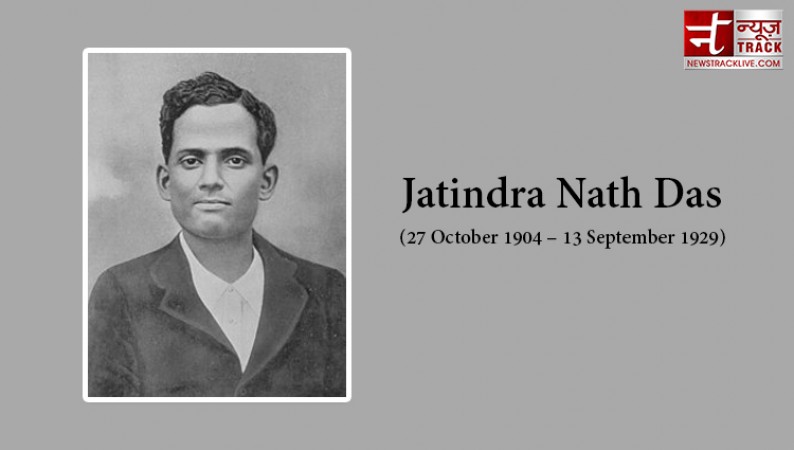
September 13, 1929, the day when there was a sudden silence in Lahore central jail, as a 25-year-old young revolutionary succumbed to his injuries after a 63-day fast. At the same time, the ground had slipped under the feet of the British Empire, seeing the number of his loved ones. Lahore city had never seen such a long Zulus before! The city as well as the entire country was mourned. Each Indian was shedding tears for his young revolutionary. He is also a revolutionary who had always put a class of the British, but alas he is no longer among them. The brave soldier of Maa Bharati was none other than Jatin Dan's passionate soldier of freedom Jatindranath Das.
When Das was only 9 years old, his mother passed away, after which he was taken care of by his father. In 1920, he passed the matriculation examination. He was studying further when Mahatma Gandhi started the 'Non-Cooperation Movement.' After which he also jumped into this movement. He also had to go to jail for this, but, a few days later, when the agitation ended, he was released from jail. Went on to complete his education in college again. However, their enthusiasm was still boiling to show something for the country. He was arrested and jailed for the Kakori case in 1925.
Where he saw the inhuman treatment of revolutionaries in prison, which caused him a lot of pain. Das then started his fast against it. It had been 20 days since he was on a fast, but the young revolutionary did not give up. In view of his courage, the jail superintendent was forced to apologize and was released from jail on the 21st day. Further, when Bhagat Singh invited him to come to Agra to make a bomb, he came to Agra from Kolkata. In 1929, when Bhagat Singh and Batukeshwar Dutt hurled bombs at the Assembly, the bombs were made by Jatindranath Das. On June 14, 1929, Das was arrested by the British and jailed under the Lahore conspiracy case.
When he was put in jail, he again saw the hellish treatment of the prisoners and were deeply saddened. While British prisoners had good facilities, revolutionary prisoners were being treated inhumanly. Their clothes were not changed for several days, filth was common in their barracks. However, he did not remain silent and started fasting back. Das's fast began on July 13, 1929. During this time, a lot of effort was made by the jail personnel to feed him, but they failed to break the morale of this revolutionary.
It is said that Das used to drink only water during his fast. In view of their deteriorating health, the prison authorities prepared a plan, which had put some pills in their water, maintaining some Giza in his body. However, when Das came to know of this, he stopped drinking water. After this act of the British, Das's condition became critical and on the 63rd day of the fast, On September 13, 1929, Jatindranath Das left the world forever.
Pradeep Kumar has spread the magic of his acting in many languages
Threat of cyclone hovered over Jharkhand, difficulties may increase
PM Narendra Modi to attend 16th East Asia summit virtually today